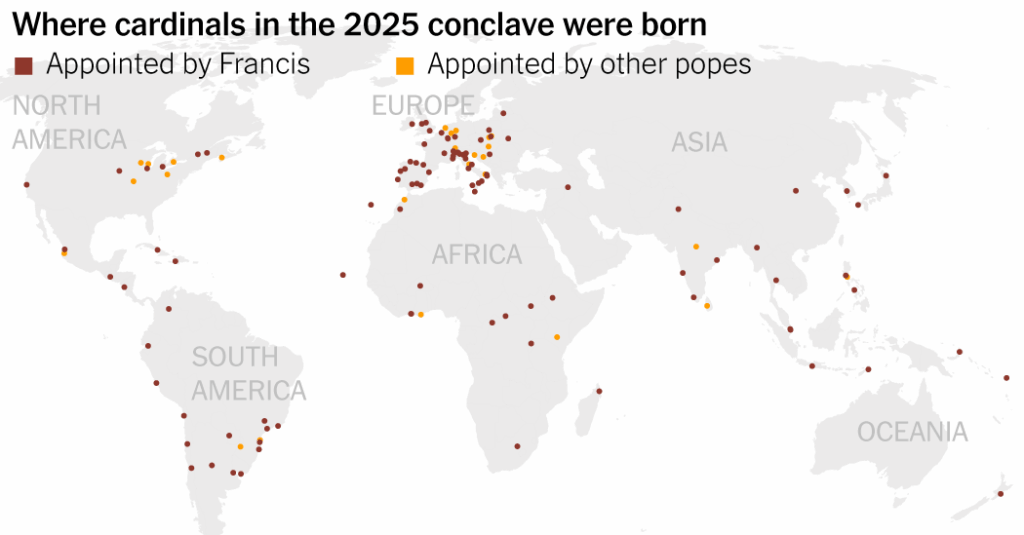Francis selected cardinals who he felt shared his sense of the church — that it should be less hierarchical and more pastoral — but they do not necessarily embrace his more inclusive view of the institution.
In some parts of the world with more conservative cultures, local church leaders oppose liberal causes like ordaining women as deacons and changing Catholic teaching on L.G.B.T.Q. relationships.
A conclave is always unpredictable, but the considerable change in makeup of the cardinals who will soon gather behind the closed doors of the Sistine Chapel makes this one even more so.
Will the lack of personal ties to one another and their newness to Rome for Francis’ cardinals benefit papal aspirants with strong name recognition, resulting in a quick conclave? Or might they take their time searching for a new face and a new path for the church — even if it is not one their patron might have chosen?
A look at how Francis transformed the College of Cardinals offers clues.
Francis more than doubled the number of cardinals representing countries in Asia, where many see the church’s future. He also increased the number of cardinals representing Africa, where Catholicism is growing fast.
Note: Only 115 of the 117 cardinal electors participated in the 2013 conclave, in which Francis was chosen as pope. In 2025, two cardinals announced they would not attend the conclave.
Source: The Vatican
While many liberal Catholics cheered Francis’ drive to broaden the church, many of the prelates he put in positions of authority lead flocks with different visions for their faith. If progressives wanted him to make still more radical changes to church teaching, some of his own appointees in Africa and Asia made clear they were no fans of upheaval.
They largely rejected, for example, his decision to allow priests to bless same-sex couples.
“In Africa, there is no place to bless homosexual couples,” said Cardinal Fridolin Ambongo, 65, the archbishop of Kinshasa, the capital of the Democratic Republic of Congo. “Not at all.”
In response, Francis essentially allowed them to opt out.
Note: Numbers are rounded.
Sources: World Christian Database via Gina A. Zurlo; the Vatican
Francis saw his changes to the College of Cardinals as the way forward for a church that calls itself universal — and desperately needs growth in new places to make up for the loss of faith in the old ones.
“It’s the natural journey of the church,” said Cardinal Beniamino Stella, an Italian who was once a power player in the church and served as a diplomat in Africa and South America. “The conclave is a sign, because they are coming from all over the world, so they bring sensibilities representing communities from the East and West.”
But with conservative defenders of doctrine now looking to them as potential allies, it is clear that the cardinals are also bringing something else: an extra dose of uncertainty to an election that is by nature uncertain.

